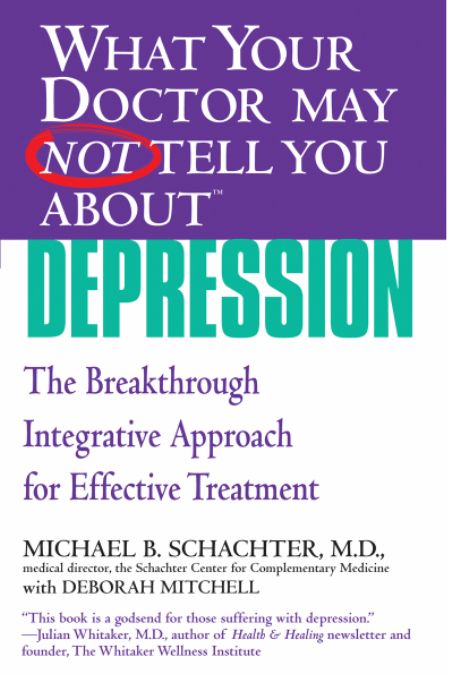
Introduction
taken from
WHAT
YOUR DOCTOR MAY NOT TELL YOU ABOUT DEPRESSION
As I sit down to write this book, the
Food and Drug Administration (FDA) has just approved another
antidepressant. The name of the drug doesn't matter; it joins the ranks of
about one dozen others already on the market. Presently, more than two
dozen additional antidepressants are under development, according to the
trade group Pharmaceutical Research and Manufacturers of America. And as
you sit today and read this book, another antidepressant has been, is
being, or soon will be released to the market, to be followed by others
currently in research-and-development or trial phases.
While the good intentions of those who
work so diligently to find remedies for the millions of people who suffer
with depression may be commendable, I remain largely unimpressed. Why?
Because regardless of the number of antidepressants introduced to the
market or when they appear, the bottom line is that psychotropic drugs
are not the complete answer to the critical and growing problem of
depression in this country. In fact, I believe that in some ways they
contribute to it.
On the surface, these statements may
seem daunting and depressing. After all, we've been told by the
conventional medical community, the pharmaceutical companies, and Madison
Avenue marketers that drugs will lift your spirits, improve your mood, and
spark up your sex life.
If drugs are not the answer, then what
is? There is no simple answer to this question, but there is an
approach to helping people with depression that has largely been ignored
by conventional psychiatry. I and a growing number of my colleagues have
found it to be a natural, biofriendly approach called orthomolecular
psychiatry -- the practice of treating psychological problems by providing
the body with optimal amounts of substances that are natural to it --
including amino acids, vitamins and minerals, trace elements, and
essentail fatty acids -- combined with positive lifestyle habits and
mind-body therapies. Linus Pauling, PhD, originally introduced this term
in 1968 in the journal Science.
In this book I explain how you or a
loved one, and the tens of millions of Americans who suffer with
depression and related disorders, can find relief naturally, safely, and
effectively, without the use of medication. This approach has worked for
tens of thousands of individuals, and it can work for you, too. I see
proof of it every day at my center, the Schachter Center for Complementary
Medicine in Suffern, New York. You don't need to come to Suffern to win
your battle against depression, but you do need to take your
healing process into your own hands, and that's what I can help you do
with this book.
Copyright © 2006 by Michael
B. Schachter, MD, and Lynn Sonberg